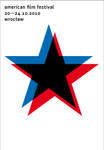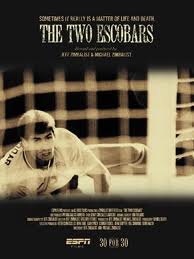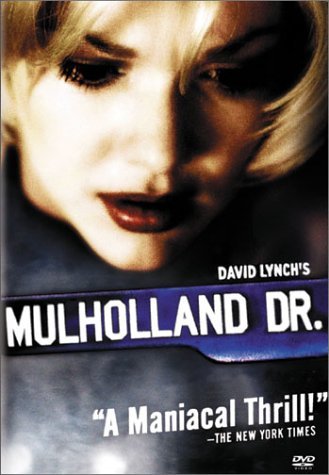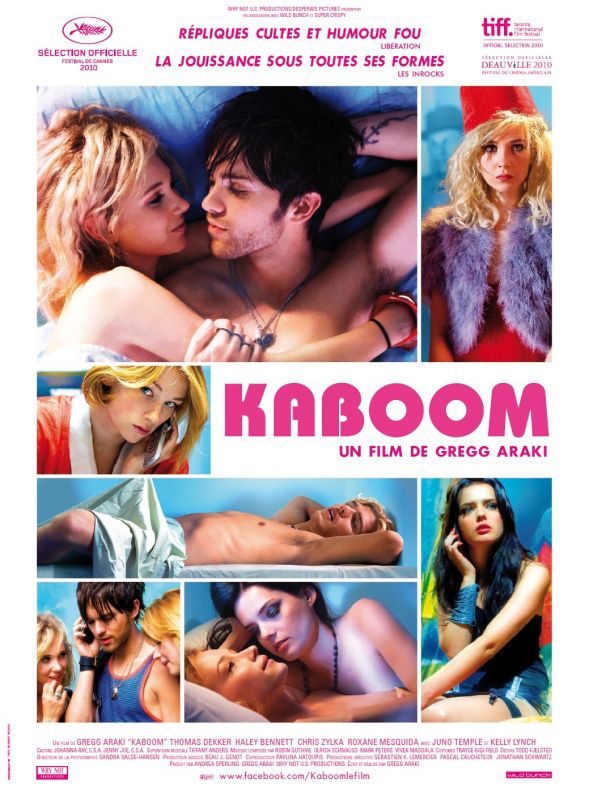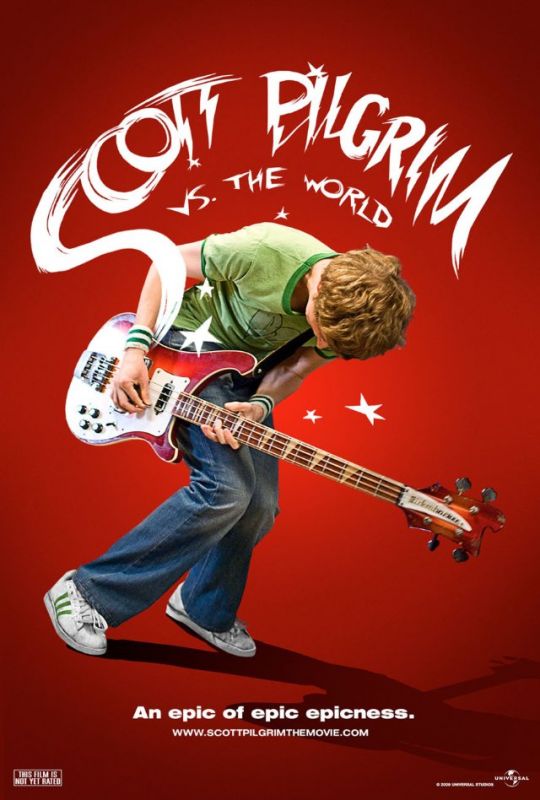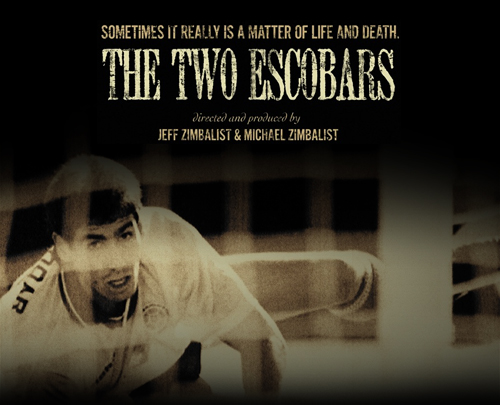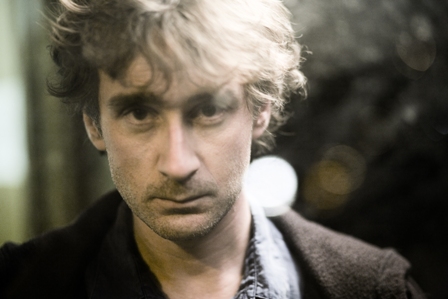|
|
||
|
Pro Tools
FILMFESTIVALS | 24/7 world wide coverageWelcome ! Enjoy the best of both worlds: Film & Festival News, exploring the best of the film festivals community. Launched in 1995, relentlessly connecting films to festivals, documenting and promoting festivals worldwide. We are sorry for this ongoing disruption. We are working on it. Please Do Not Publish until this message disappears. For collaboration, editorial contributions, or publicity, please send us an email here. User login |
American Film FestivalThe inaugural American Film Festival will be held in the heritage town of Wroclaw, Poland from October 20 to 24, 2010. It is the first film event in Eastern Europe exclusively devoted to contemporary and classic American cinema.  Documentary Roundtable Interviews: American Film Festival
On Friday morning, I sat down with three of the documentarians represented in this year’s American Film Festival, the first event in Eastern Europe to be solely devoted to contemporary and classic American cinema. Alex Mar is the writer/director of the film AMERICAN MYSTIC, which explores fringe religions and cults in America. Chuck Workman is an Oscar-winning director and compilation artist whose documentary VISIONARIES offers a historic overview of the avant-garde film movement of the 1950s to the present, presenting interviews and clips from some of the most accomplished auteurs of the underground. Jennilyn Merten is the co-director of SONS OF PERDITION, a profile of two young men who escaped a fundamentalist Mormon community and are trying to find their new places in the world. Sandy Mandelberger: “How did your film make it here to the American Film Festival in Poland?” Alex Mar: I was approached by the Festival after the film screened at the Tribeca Film Festival last May. I had never been to Poland before and thought that it was an interesting place to show the film and try and get some feedback and reaction to it from the Polish public.
Chuck Workman: I also was approached at the Tribeca Film Festival, where the film had its world premiere. I think that Tribeca has a particularly strong documentary section and showing there definitely generated interest from many film festivals around the world. I am a lover of Polish cinema so I wanted to visit the country where it originates from.
Sandy Mandelberger: “What interested you in the subjects of your films and how did you get started on making them a reality?”
Chuck Workman: I had done two previous films, SUPERSTAR about Andy Warhol and THE SOURCE about the beat poets. In both cases, I got to interview Jonas Mekas, the founder and chief curator of the Anthology Film Archives in New York, for the projects. Mekas is a great champion for avant-garde filmmaking and my original idea was to make a film about him and his great commitment to the form in his own work and in the works of others. But then I started getting fascinated with the idea of doing an overview film that would look at the lives and careers of several of the important filmmakers of this movement, who are not nearly as well known as they should be. I went to New York and did a long interview with Jonas Mekas at the Anthology Film Archives which serves as the spine of the film and then go to interview some of the other living legends and to ask for permission for use of clips from the films.
Alex Mar: I’ve had a long fascination with fringe communities and groups. Maybe because I was raised a Catholic, I have always been intrigued by ceremony and rituals. I have a strong sense that religion is helpful to people in their daily lives and also gives them a sense of community. Since America is so intrigued with the subject of religion, and it effects everything from economics to politics, I decided to make these clandestine groups the subject of my study of religion in America.
Jennilyn Merten: I identified with the two young men who are the protagonists of my film who make the difficult decision to leave their families and their communities. I was raised as a Mormon, although not in the same fundamentalist kind of way as these young men, who were part of the community centered around Warren Jeffs, who is now serving time in prison for child abuse and other sins. I just felt that this was a really compelling story told from the point of view of these young men who made a huge sacrifice by rebelling against their families and communities and, at a very young age, are trying to find a new way to live in the world.
Sandy Mandelberger: “Your films are all so intimate. How did you work to get the trust of your subjects and allay their fears that you would abuse their confidence in you?”
Alex Mar: I definitely had to work on gaining a level of trust otherwise there could not have been a film. I realized that I find that fine line of showing who they were while still shielding them from undue exposure. I was able to gain the trust of a few key individuals and then others saw that I could be trusted with their stories. I made it clear to everyone that I was there to observe and record, not to mock or criticize. When I became an active member in their private rituals, they opened up to me and let me tell their stories.
Jennilyn Mertyn: My partner and I worked with some social workers in Utah, where the story takes place and where we also are from. I think that people have a great desire to have their stories told and even these young men, who had been rejected by their families and communities, had a great need to do this. We had great empathy for these young men, because we come from the same state and are ex-Mormons. We shared hymns and stories with them, so they came to appreciate that we really understood them. We kept repeating to them that we would not abandon them and they opened themselves up.
Sandy Mandelberger: “Was there anything that you were not able to include in the film that you wish you had been able to?”
Alex Mar: I was told that I could not bring a camera to shoot the sundance ceremony, which is a sacred ritual. The feeling from the elders was that the presence of a camera would disrupt the ceremony. It is a shame because it was such a beautiful and profound experience and would have looked great on film, but I had to respect their points of view because I understood why they felt that filming it would destroy its special qualities.
Jennilyn Merten: It would have been great if we had gotten to Warren Jeffs, the leader of this fundamentalist Mormon community, but at the time that we were filming, he was wanted by the FBI and was on the lam. We also resisted trying to get more interviews with the family members, because we wanted to stress the isolation of these young men who had been disowned by their families.
Chuck Workman: Most of the filmmakers we approached or the families of those who had died were open to working with us. We got pretty much all the access we wanted, particularly since people understood our goals and that Jonas Mekas had gotten involved. However, I did want to include clips from the 1950s beat film PULL MY DAISY, which I can consider an important film in this movement. However, I could not get the cooperation of the filmmaker Robert Frank, who refused to be interviewed on camera or give me access to the film. Anyway, it would have been nice……but one moves on.
23.10.2010 | American Film Festival's blog Cat. : American Film Festival PEOPLE
|
LinksThe Bulletin Board > The Bulletin Board Blog Following News Interview with EFM (Berlin) Director
Interview with IFTA Chairman (AFM)
Interview with Cannes Marche du Film Director
Filmfestivals.com dailies live coverage from > Live from India
Useful links for the indies: > Big files transfer
+ SUBSCRIBE to the weekly Newsletter DealsUser imagesAbout American Film FestivalThe EditorUser contributions |


















